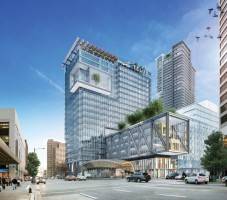April 28, 2016
New partnership to encourage creation of age friendly workplaces 0
 Between 2005 and 2015 the number of people working over the age of 50 in the UK increased by 2.5 million, while those working over the age of 65 more than doubled. By 2022, there will be 12.5 million job vacancies that need to be replaced due to people leaving the workforce in addition to the two million new vacancies that will be created. However, there are estimated to be just seven million younger people to fill them. Recruiting and retaining older workers will be critical to closing this gap. Now in a major new initiative, the Centre for Ageing Better has gone into partnership with Business in the Community to identify and test what works to recruit, retrain and retain older workers. Through this partnership, it wants to hear from employers across the country who see the benefits of older workers and who are implementing changes to create age friendly workplaces.
Between 2005 and 2015 the number of people working over the age of 50 in the UK increased by 2.5 million, while those working over the age of 65 more than doubled. By 2022, there will be 12.5 million job vacancies that need to be replaced due to people leaving the workforce in addition to the two million new vacancies that will be created. However, there are estimated to be just seven million younger people to fill them. Recruiting and retaining older workers will be critical to closing this gap. Now in a major new initiative, the Centre for Ageing Better has gone into partnership with Business in the Community to identify and test what works to recruit, retrain and retain older workers. Through this partnership, it wants to hear from employers across the country who see the benefits of older workers and who are implementing changes to create age friendly workplaces.































April 11, 2016
What our enduring love of wooden office furniture tells us about how we work
by Paul Goodchild • Comment, Furniture, Workplace design
(more…)